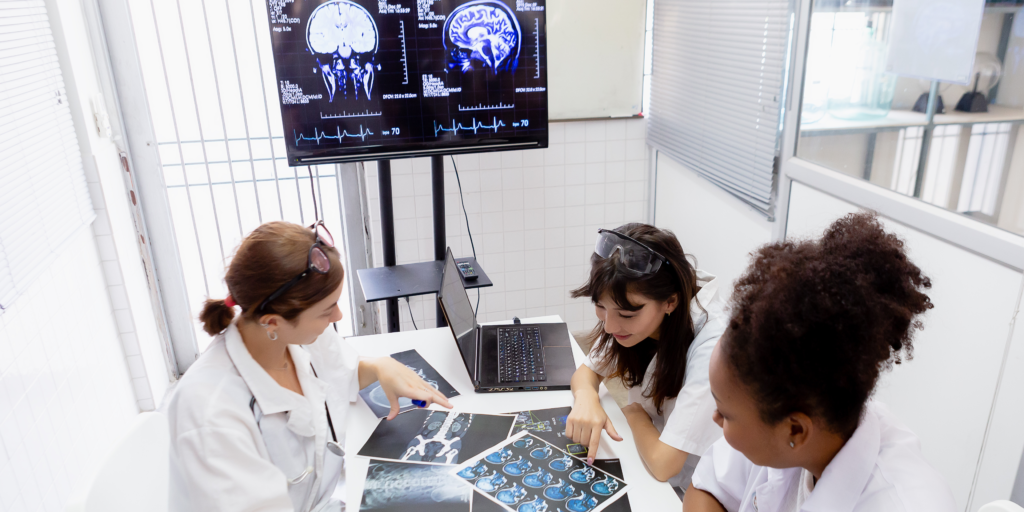Brain Organoids are Revolutionizing
Mini-Brains: An Exploration of the Human Mind’s Microcosm
Imagine looking into a petri dish to see a tiny replica of the human brain, which is the most complex organ known to man. Brain organoids, another name for mini-brains, are a reality not science fiction. These microscopic marvels, developed from stem cells in a laboratory, are transforming our knowledge of how the brain develops, functions, and possible therapies for neurological conditions.
Table of Contents

From Tiny Brains to Stem Cells:
Brain Organoids are Revolutionizing
Pluripotent stem cells, which can differentiate into any type of cell in the body, are the starting point of a mini-brain’s journey. These cells are stimulated by scientists to become neural stem cells, which subsequently self-organize into complex clusters of brain tissue that mimic the early stages of brain development. These tiny, poppy-seed-sized structures are made up of different neural cell types, such as neurons, glia, and even primitive blood vessels.
Revealing the Brain’s Secrets:
Brain Organoids are Revolutionizing
Compared to conventional research techniques like animal models, mini-brains have a number of benefits. They give researchers a more human-relevant platform on which to examine brain development and illness, enabling them to:
- Model human brain development: Through examining the development of miniature brains, researchers can learn more about the complex processes involved in brain formation and how these processes relate to neurodevelopmental disorders such as schizophrenia and autism.
- Crack the code of neurological illnesses: Patient-derived stem cells can be used to engineer mini-brains that mimic particular neurological diseases such as Parkinson’s or Alzheimer’s. This makes it possible to research the causes of diseases and test possible treatments in a safe setting.
- Customise medicine: In the future, tiny brains made from the cells of specific patients may be employed in personalised treatment. This would increase treatment efficacy and decrease side effects by allowing physicians to customise medications to individual genetic and disease profiles.
- Beyond Medicine: Mini-Brains’ Future
Mini-brains have applications far beyond biomedical research. These microscopic tissues may facilitate:
Brain Organoids are Revolutionizing
- Neurotechnology: Brain-computer interfaces or even neuromorphic computing technologies, which draw inspiration from the architecture of the human brain, may be developed as a result of integrating artificial intelligence with mini-brains.
- Drug discovery: By testing novel medications and therapies for neurological disorders using mini-brains, the development of safe and efficient treatments may be sped up.
- Understanding consciousness: Although it is unlikely that mini-brains will ever reach full consciousness, understanding the basic neural activity of these brains could provide insight into the nature of consciousness itself.
- Moral Aspects to Take into Account: An Act of Balance
Like any powerful technology, mini-brain research is fraught with ethical issues. Sentience, consciousness, and the ethical ramifications of utilising human tissue raise issues that demand thoughtful deliberation and ethical research procedures. Thorough ethical frameworks and open communication are essential to ensuring that the enormous potential of mini-brains is used for good.
An Overview of the Future:
Brain Organoids are Revolutionizing
Mini-brains are a huge advancement in our knowledge of the human brain. Although obstacles and moral dilemmas still exist, the potential breakthroughs in technology, healthcare, and our basic self-awareness are genuinely revolutionary. These little marvels could eventually help unravel the mysteries of consciousness and pave the way for the treatment of neurological disorders and personalised medicine. Research into them is promising and could lead to these outcomes.
Watch this space for more updates on this quickly developing field as mini-brains continue to influence neuroscience and other fields in the future!


